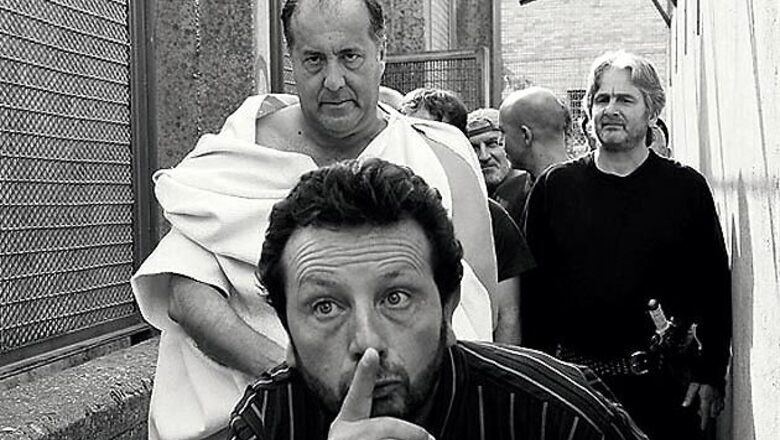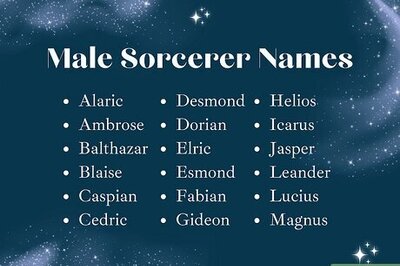
views
Berlin: 'Caesar Must Die', a docu-drama in which murderers and mafiosi act out a Shakespearean tragedy in a high-security Italian jail, won the Golden Bear award for best picture at the Berlin film festival on Saturday.
The black-and-white movie, called 'Cesare deve morire' in Italian and directed by veteran brothers Paolo and Vittorio Taviani, was among the favourites to scoop the coveted honour.
The Tavianis - Paolo is 80 and Vittorio 82 - followed a group of convicts in the Rebibbia jail on the outskirts of Rome as they rehearse 'Julius Caesar' for a prison production.
The play's themes of power and corruption, murder and vengeance clearly resonate with hardened convicts serving sentences of between 14 years and life, resulting in moving performances from a mostly untrained cast.
The Golden Bear, which can help launch a film onto the international stage as it did the feted Iranian drama 'A Separation' in 2011, is the Tavianis' biggest award since 'Padre Padrone' won the Palme d'Or in Cannes 35 years ago.
The prize ceremony brought to a close the 10-day cinema showcase, where hundreds of films vied for the attention of the world's media and movie executives at the European Film Market.
Once again, festival director Dieter Kosslick had to juggle getting established stars on the red carpet with selecting hard-hitting, low-budget films that might otherwise struggle for audiences.
Critics said he just about managed it in 2012, with Angelina Jolie, Brad Pitt, Meryl Streep and 'Twilight' heartthrob Robert Pattinson drawing big crowds to the festival's central cinema.
The main competition of 18 movies was generally viewed as an improvement on recent years, and the Taviani brothers are likely to be popular winners for their well-received entry.
Plucked from Obscurity
Arguably the highlight of the night was the Best Actress Silver Bear for Rachel Mwanza, a 14-year-old girl plucked from obscurity in Kinshasa, capital of the Democratic Republic of Congo, to star in 'War Witch'.
Her portrayal of Komona, a young girl who is raped and brutalised by rebels who force her to join them in an unnamed African conflict, belied her age and inexperience.
Addressing journalists on the day of the film's world premiere she spoke movingly of being abandoned first by her parents and then by her grandmother.
"I don't have a family any more, the people you see on each side of me are my family now," she said, meaning the cast and crew of the movie, shot in her home country.
She struggled to hold up her Silver Bear statuette for the photographers as it was too heavy and, asked by reporters if she wanted to carry on acting, said: "I would like to make films forever, until I die."
The Jury Grand Prix prize, effectively the runner-up to the best film, went to the Hungarian drama 'Just the Wind', based on the real-life murder of a Roma family.
Christian Petzold took home the best director prize for the German Cold War drama 'Barbara', which had been many festival goers' tip for Best Film.
'A Royal Affair', based on an 18th-century royal scandal in Denmark, scooped two prizes - Best Actor for Mikkel Boe Folsgaard as the deranged king and Best Screenplay for co-writers Nikolaj Arcel and Rasmus Heisterberg.
Lutz Reitemeier was awarded the artistic achievement Silver Bear for his camera work on the epic, three-hour Chinese period drama 'White Deer Plain'.
'Tabu' by Portuguese director Miguel Gomes was a love story that played with cinematic conventions by mixing colour and black-and-white, sound and silent and 35 mm with 16 mm, and was awarded the Alfred Bauer Prize for innovation.
And 'Sister', about a young boy who steals ski equipment from an upmarket Alpine resort to make ends meet, won a special one-off Silver Bear.
















Comments
0 comment